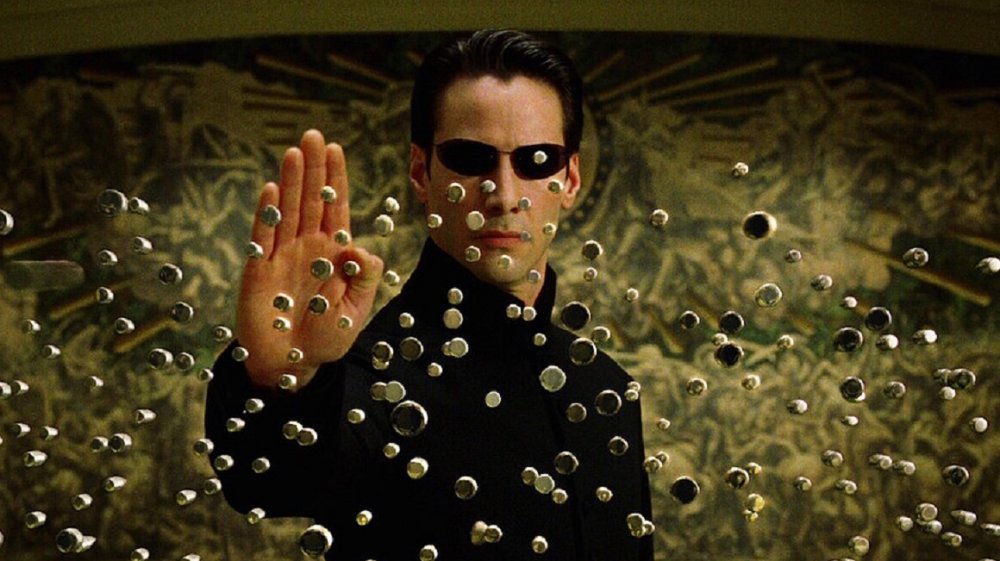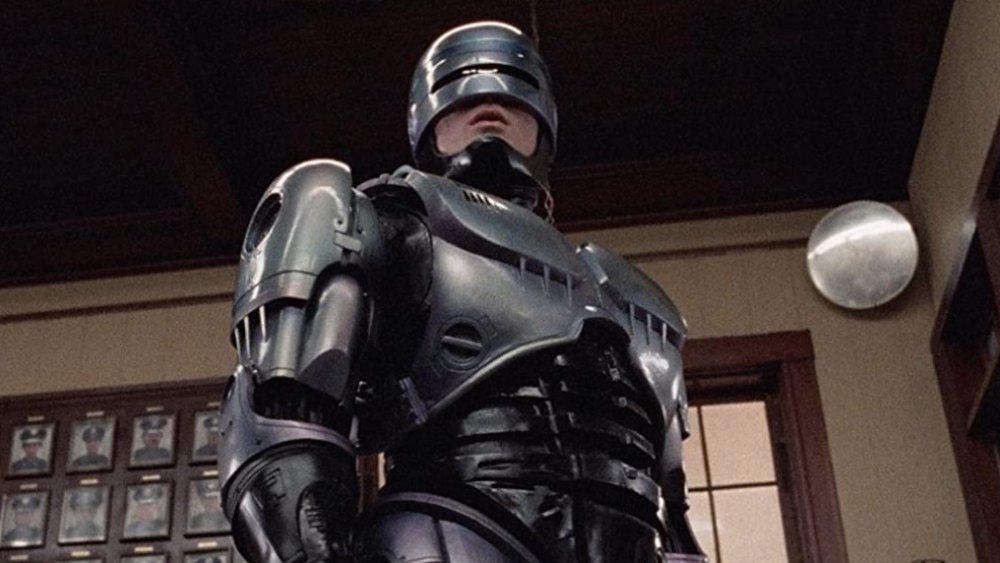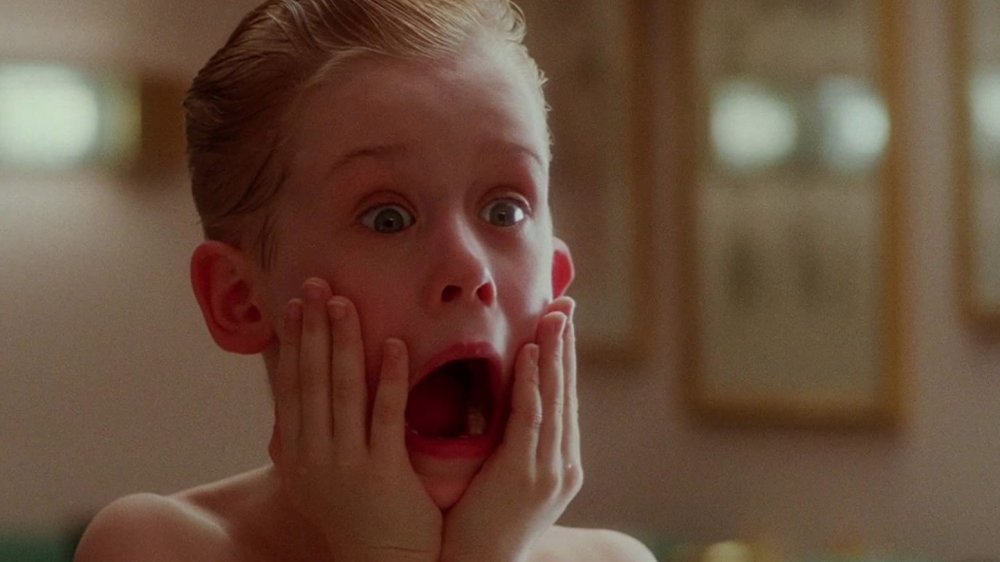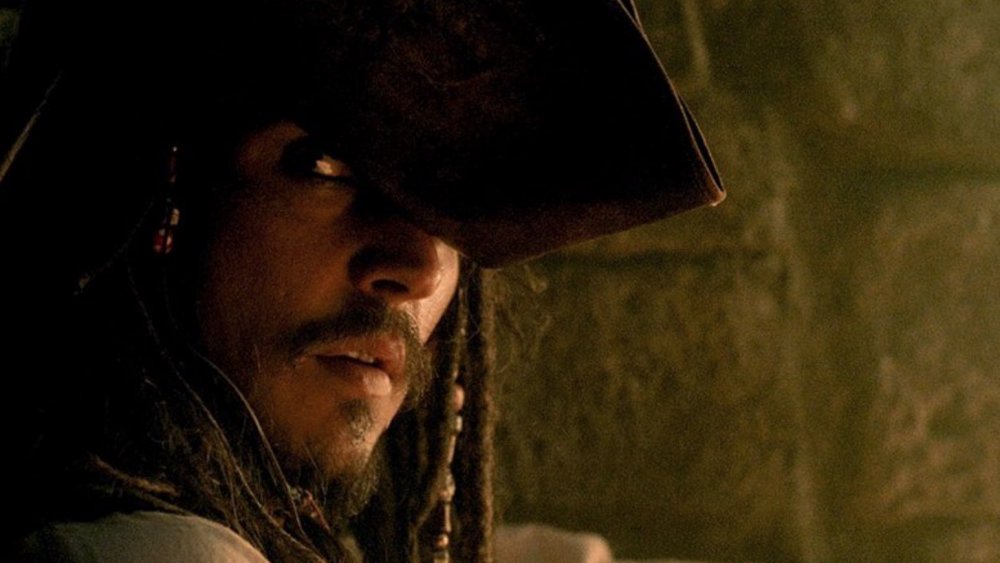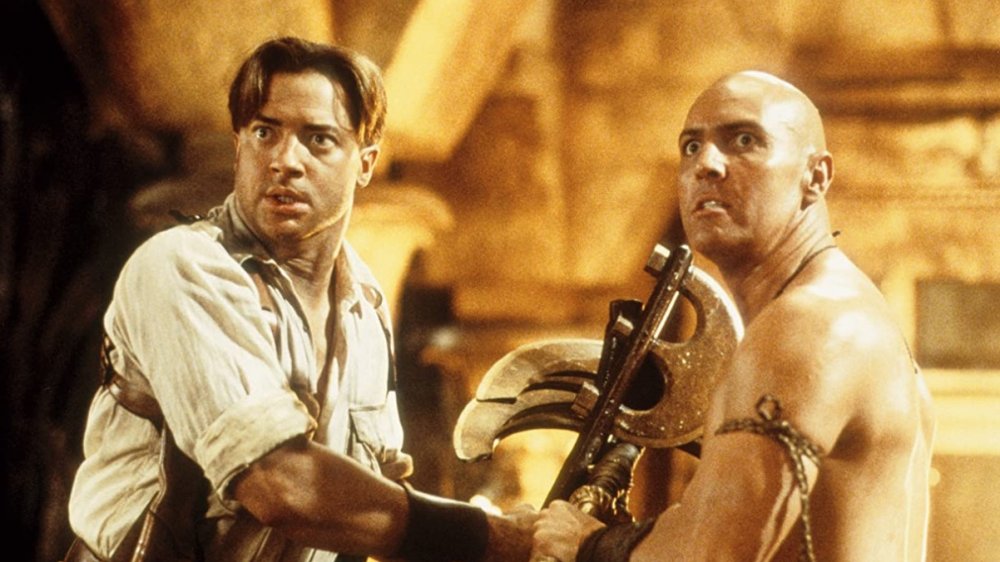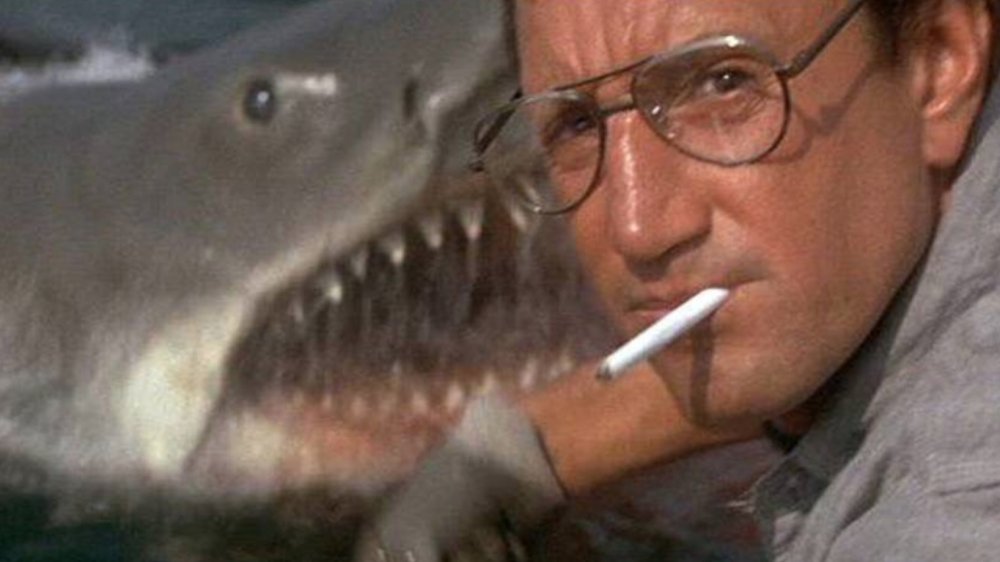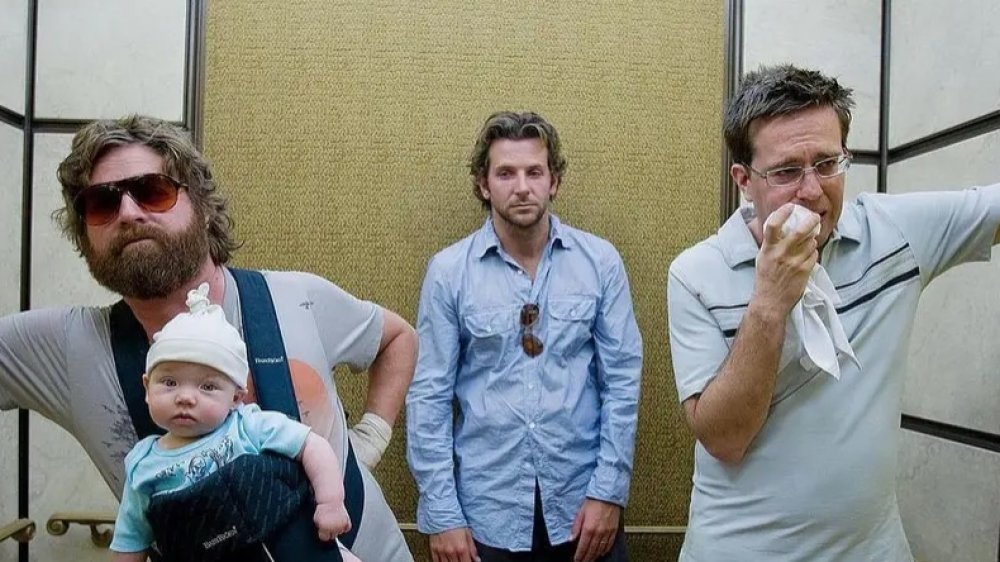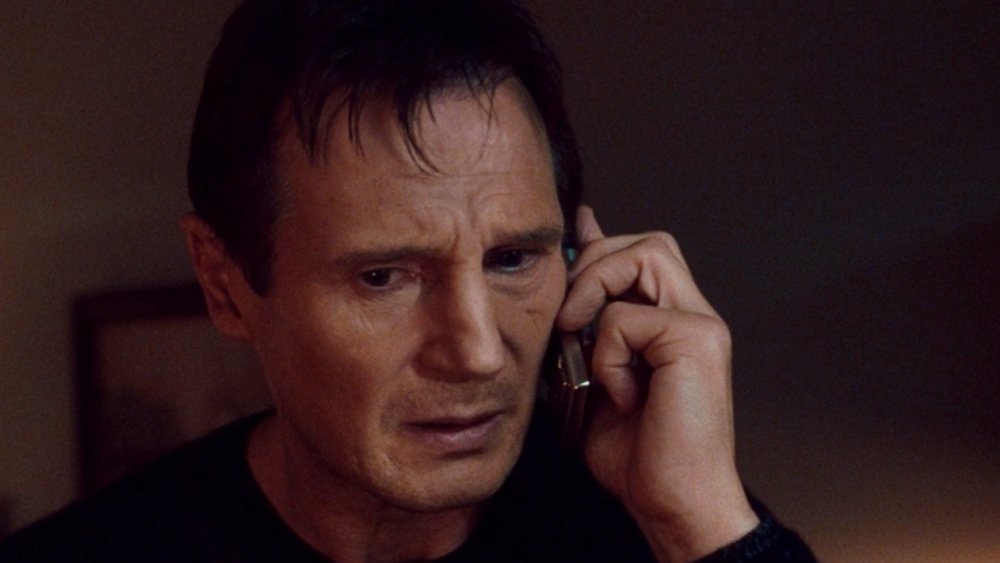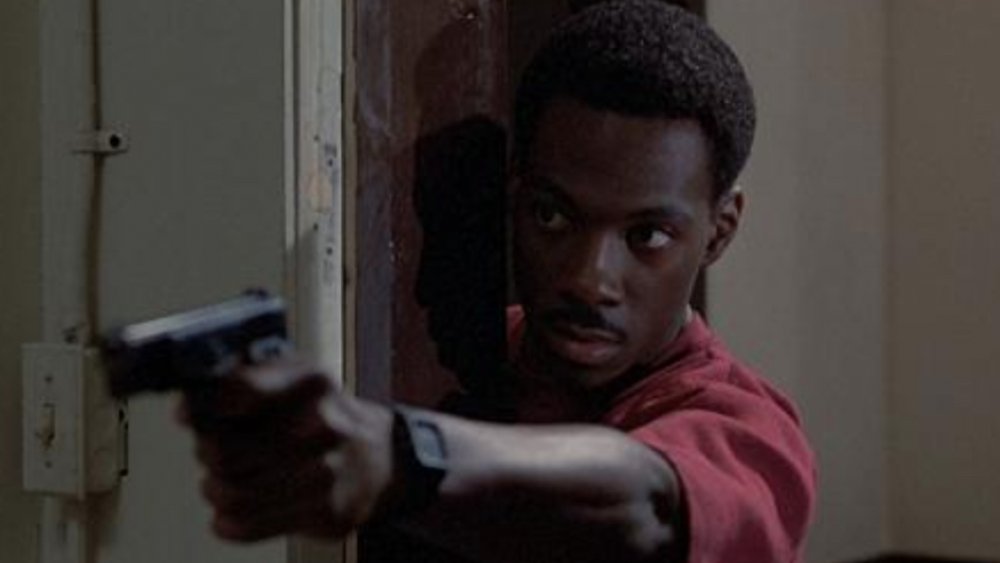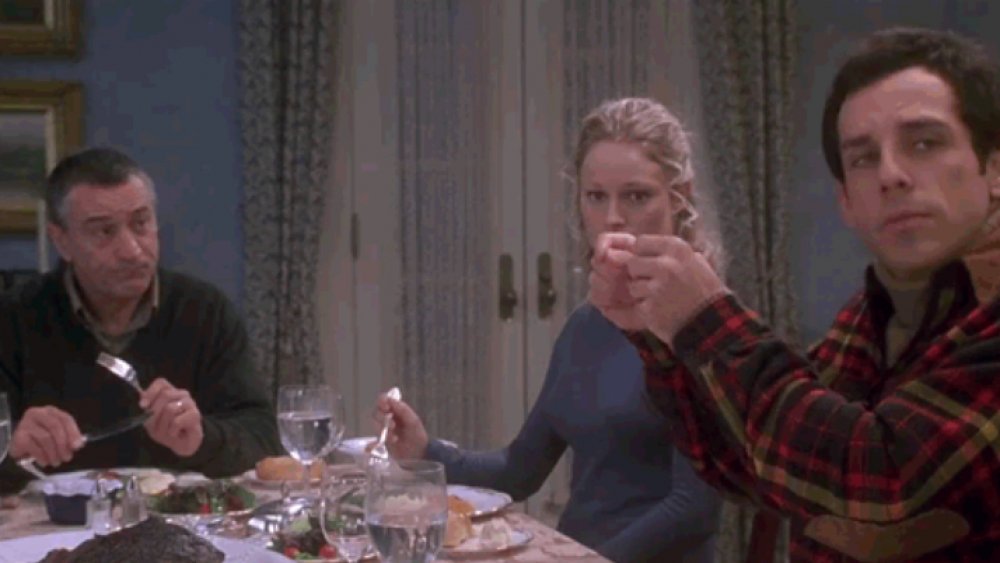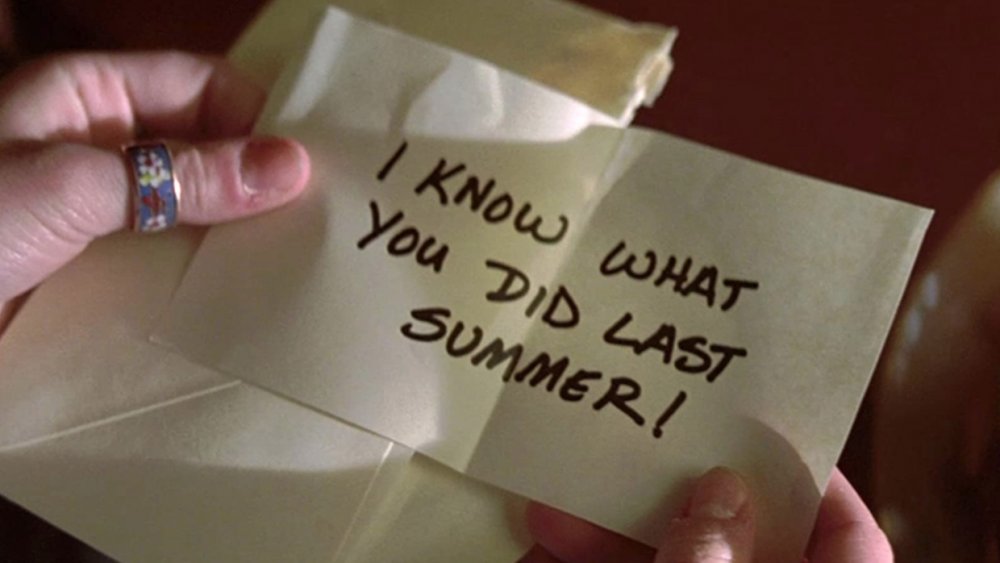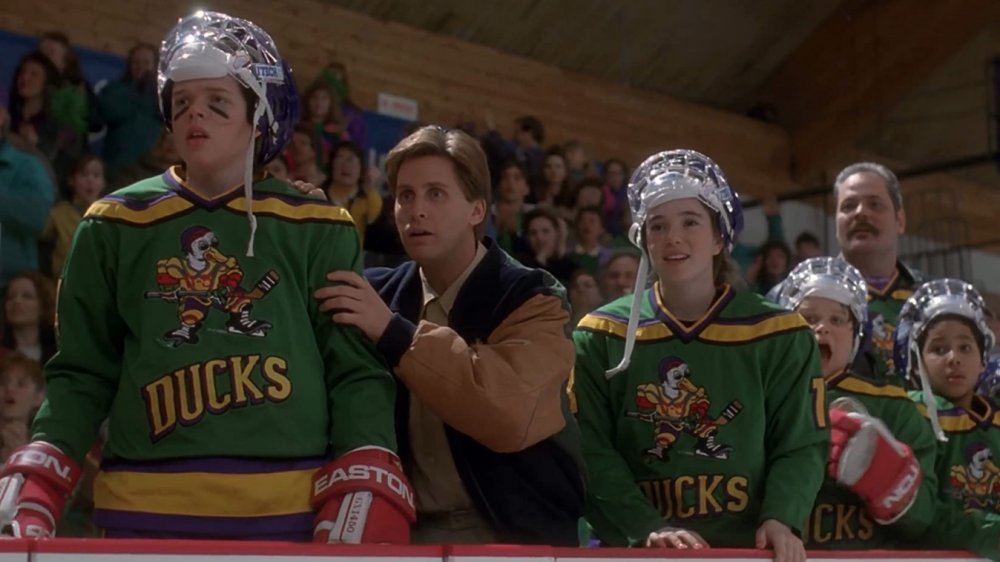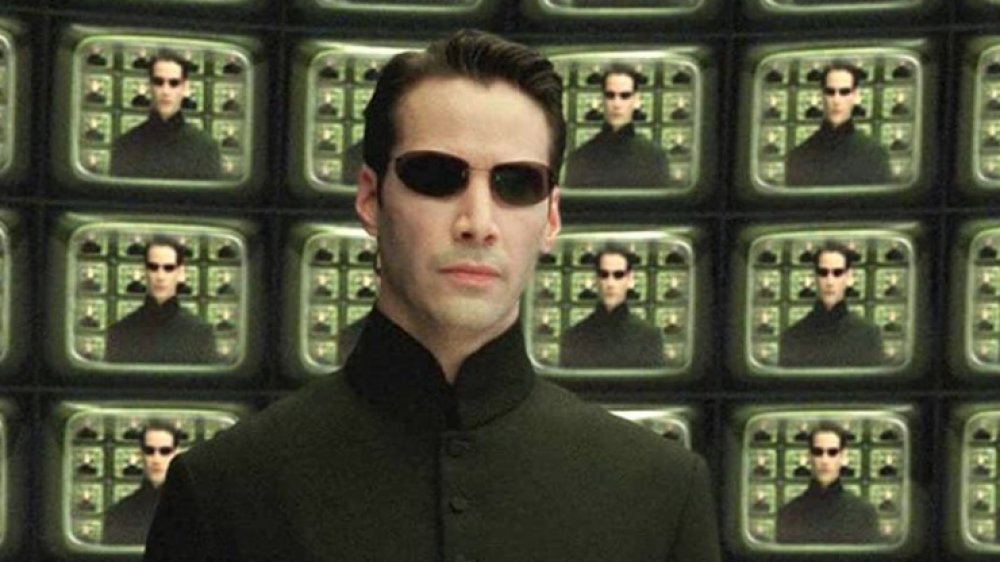Franchises That Kept On Getting Worse After Every Sequel
Franchises are a funny thing, especially today. We live in the "cinematic universe" era, in which every film has to be purposefully interconnected from the start, no matter how contrived or forced the results. But this wasn't always the case, as for most of movie history, franchises were pretty simple. If your movie makes money, keep making sequels until the series stops making money. Good, bad, mediocre, quality didn't matter. As long as the audience showed up, movie studios would churn out sequels with II, III, and IV added to the original film's title. With that mentality, a lot of movie franchises got progressively worse. Like, a lot worse.
For every The Dark Knight or Empire Strikes Back, there are countless other sequels that are just downright deplorable. This isn't just our opinion either, as we have Rotten Tomatoes to back us up. What went wrong? Well, a lot of movies were surprise hits that had studios rushing out sequels with characters and storylines that simply didn't have the cinematic staying power for multiple follow-ups. The results weren't pretty. While some series started strong but had a slow, steady decline, others were trash from the start, then fell off a steep cliff and somehow kept falling further below rock bottom. What are these franchises, and what went wrong? Get ready to cringe. Here are the franchises that kept on getting worse after every sequel.
Part man, part machine, mostly awful
A movie called RoboCop shouldn't be good. Fun? Sure. Entertaining? Definitely. But in a Sharknado kinda way. Well, RoboCop's creators didn't get the memo because their 1987 sci-fi/action hybrid has all of the exploitative, over-the-top gore and violence you'd expect from the title while also brilliantly satirizing American culture, including the very same exploitative, over-the-top gore and violence it showcases! RoboCop boasts an amazing 90% Tomatometer score, with critics saying it's a "surprisingly smart sci-fi flick," which doesn't do it justice.
Paul Verhoeven's rebellious railing against a corrupt system while showing reverence for his heroes (also embodied in Total Recall and Starship Troopers) was never more brilliantly displayed than in his masterpiece, RoboCop. RoboCop was also profitable, earning $53 million on a $13 million budget, so naturally production company Orion wanted more. But without Verhoeven at the helm, the chrome fell off the bot, as RoboCop 2 currently has a 31% Tomatometer score, though it still earned $45 million.
By RoboCop 3, original star Peter Weller was over it, and so were critics and audiences. With Robert John Burke in the suit and Fred Dekker behind the camera, the PG-13 RoboCop 3 earned an atrocious 3% score (critics called it "asinine") and made $10 million worldwide on a $22 million budget. A misguided 2014 reboot earned a mediocre 48% Tomatometer score but managed $242 million worldwide on a $100 million budget. Not bad, but besides the original film, the RoboCop brand belongs in the scrap heap.
Moviegoers stayed home for this Christmas classic's sequels
Home Alone is one of the biggest success stories in movie history. On a scant $15 million budget (probably less than the McAllister's paid for their sweet mansion in the Chicago suburbs), the 1990 smash hit made $285 million domestically and $476 million worldwide. The 1992 sequel, Home Alone 2: Lost In New York, made significantly less, $173 million domestic and $358 million worldwide, but since it was on a modest $20 million budget, who cares? Alas, Macaulay Culkin grew up, and moviegoers were probably wondering how many times this kid could get left behind, so Home Alone III featured a new tyke, but he was no Kevin, and the movie mustered only $30 million worldwide in 1997.
Like the Wet Bandits, the franchise didn't know when to stay down, as there were two direct-to-video follow-ups, Home Alone 4 in 2003 and Home Alone: The Holiday Heist in 2013. The series' diminishing returns are reflected on Rotten Tomatoes, as well. Home Alone earned a "fresh" 65% score, while Home Alone 2 hit a swinging paint can with a "rotten" 33% score, and Home Alone 3 continued to bleed with 29% score. Home Alone 4 and The Holiday Heist are so irrelevant they don't even have a Rotten Tomatoes score as critics, like nostalgic millennial moviegoers, had moved on from the franchise.
Pirates is the once-great franchise that sunk
Nothing good lasts forever. Case in point, the Pirates of the Caribbean franchise. Once the crown jewel of pop culture, the seafaring adventure series faded not into the sunset but into irrelevancy and caricature.
Without Marvel or Star Wars in its portfolio yet, Disney gambled $140 million on the theme-ride based The Curse of the Black Pearl, a bet that paid off when the 2003 film earned $654 million worldwide and a "fresh" 79% Tomatometer score. Critics didn't like the 2006 sequel though, but with Dead Man's Chest's $1 billion worldwide gross, Disney wasn't sweating the film's "rotten" 53% Tomatometer score.
The franchise kept sinking critically with At World's End earning a 44% score, On Stranger Tides' earning 33%, and Dead Men Tell No Tales earning 29%, but it wasn't until the fifth film earned $172 million domestically on a $230 million budget (it was saved only thanks to China's blockbuster grosses) that Disney realized there was trouble in paradise. Now, Captain Jack has been replaced by Captain Margot Robbie, as Disney hopes to revive their former golden goose as a female-led franchise. Based on the critical and commercial trends, we think the Pirates series has sunk deeper than Davy Jones' locker.
The Mummy series should've stayed dead
Director and screenwriter Stephen Sommers had a pretty clever idea — take the classic 1930s Universal Horror character The Mummy and remake the film as an old-school adventure yarn in the vein of Indiana Jones. The result was The Mummy, which earned $155 million domestic and $416 million worldwide on a shockingly small $80 million budget. While critics can be stiffer than Imhotep's mummy when it comes to this stuff, they still gave The Mummy a "fresh" 61% Tomatometer score.
The Mummy should've been a one-and-done story, but Universal believed there was more gold buried in this franchise. Made for $98 million, The Mummy Returns proved them right, earning $202 million domestic and $435 million worldwide. Critics' goodwill had vanished by this point, as the 2001 followup only earned a 47% Tomatometer score.
For some reason, Universal brought The Mummy back to life in 2008, a full seven years after the sequel, a time span that saw superhero movies take over the pop culture. Not surprisingly, moviegoers passed on The Mummy: Tomb of the Dragon Emperor, which made $102 million domestically and $405 million worldwide. With a $175 million budget, it was still profitable ... but barely, and the bafflingly bad 13% Tomatometer score made Universal not want to press their luck with a fourth film, and instead, they buried the mummy for good. Well, until Tom Cruise came along, and we all know how that went.
After four films, the Jaws franchise was fin-ished
Jaws famously established the summer movie season in 1975, but while dozens of blockbusters (and billions of dollars) have followed in its wake, the franchise would've been better off ending sooner. Jaws has a near-perfect 98% Tomatometer score, putting it in the ranks of "greatest movies ever," a sentiment shared by audiences who propelled the film to a fin-tastic $470 million worldwide on a $12 million budget in 1975, a gross of more than $2 billion today. Critics actually gave the divisive Jaws 2 a "fresh" 60% Tomatometer score, while audiences gave it a $208 million worldwide gross. If only the franchise stopped there.
Jaws 3-D (get it?) sunk the series into schlocky B-movie caricature, showing what the first film easily could've been if not for Steven Spielberg's once-in-a-generation talent. It earned $42 million worldwide and a 13% Tomatometer score. Surely the series couldn't get any worse? Oh boy. Jaws 4: The Revenge sunk to unheard of depths, finding the rock bottom of the sea and somehow sinking even deeper. It earned $15 million worldwide on a $23 million budget and a 0% Tomatometer score, making it not only one of the worst shark movies ever but one of the worst movies ever period. This probably makes Jaws the only franchise in history to have both the best and worst films in its genre.
The Hangover overstayed its welcome
Like the heavily inebriated partygoers at its center, The Hangover is a franchise that way overstayed its welcome. The first film earned a "fresh" 78% Tomatometer score, which is rare for a raunchy, gross-out comedy. More important to the film's producers, though, was the $277 million domestic and $465 million worldwide gross that The Hangover earned on a mere $35 million budget, making it the second-highest grossing R-rated comedy ever at the domestic box office (unadjusted for inflation). In fact, it's the first if you don't count Deadpool.
The 2011 sequel The Hangover: Part II got a budget boost of $80 million and earned $586 million worldwide, but critics were over its shtick and gave it a "rotten" 33% Tomatometer score. The film's producers said "cool story, bro" and spent another $103 million on The Hangover Part III, and they were rewarded with a $362 million worldwide gross. Sure, those are still profitable numbers, but it was a 39% drop from the second film. Critics also creamed it with a 20% Tomatometer score, calling it "less a comedy than an angrily dark thriller." With dwindling critical success and audience interest, The Hangover series has wisely sobered up and moved on.
Critics were never Taken with this action franchise
How many times can Liam Neeson's loved ones be kidnapped? It's a fair question, but it's one that didn't really concern the producers of the Taken series as long as the franchise was making money. Taken spawned Liam Neeson's late-career resurgence from serious actor to senior badass, earning $145 million domestically and $226 million worldwide on a $25 million budget. Taken 2 earned slightly less domestically with $139 million but considerably more worldwide with $377 million, while Taken 3 plummeted to $89 million domestically but a still profitable $327 million worldwide.
Thanks to the series' small budgets (an average of $39 million), they could still be making Taken movies to this day, though by now, they'd probably be in the direct-to-DVD bin. Thankfully, the studios called it quits after three. The series' dwindling reviews probably had something to do with that. The first Taken had its fans, but it was still "rotten" with 58%, numbers that continued to trek downward, as Taken 2 earned a terrible 22% score and Taken 3 had a downright atrocious 13%. Like so many other movie series on this list, Taken proved that while your first movie can have "a particular set of skills" to make money, stretching it past one film results in absurd, convoluted sequels that way overstay their welcome.
Eddie Murphy was money in the 1980s
Eddie Murphy is one of the most successful big-screen comedians of all time. And he never flew higher than 1984 with Beverly Hills Cop, which earned $234 million domestically and $316 million worldwide, becoming 1984's biggest hit, out-grossing even Ghostbusters and Indiana Jones and the Temple of Doom. Most amazing, it was a star vehicle sold exclusively on Murphy's name above the title, beating bigger-budgeted, special effects-laden blockbusters. These days, that happens pretty much never. Critics dug it, too, with an 82% Tomatometer score.
The critical love affair was short-lived, as 1987's Beverly Hills Cop II dropped to a 45% Tomatometer score, but it still earned a boffo $276 million worldwide. Beverly Hills Cop III's Tomatometer score was downright disastrous, earning an abysmal 10% from critics (putting it in the same ballpark as Norbit and The Adventures of Pluto Nash). Moviegoers appetite for Detroit detective Axel Foley's shtick was wearing thin too, as it earned a mere $42 million domestic and $119 million worldwide, a razor-thin profit on a $50 million budget. Murphy wisely turned in Foley's badge and focused on the Dr. Doolittle and Nutty Professor franchises, instead.
Producers milked all they could from Meet the Parents
In the early 2000s, Ben Stiller was riding high after There's Something About Mary, while Robert De Niro was in the midst of switching from "America's Greatest Living Actor" to "America's Highest-Grossing Grump." The two came together in Meet the Parents, a seminal aughts comedy whose incredible success yet remarkably dated blandness defined the era. With an 84% Tomatometer score, critics approved of the 2000 comedy, and moviegoers followed suit, with a $166 million domestic and $330 million worldwide gross on a $55 million budget.
The provocatively titled sequel Meet the Fockers exploded with $279 million domestically and $516 million worldwide on a $60 million budget in 2004. One group who didn't like it? Critics, who condemned the film with a 39% Tomatometer score. With nearly a $1 billion in global grosses, the franchise's producers felt confident enough to spend $100 million on the 2010 sequel, Little Fockers, which earned $148 million domestically and $310 million worldwide, still profitable but a series low and a steep 40% drop from Meet the Fockers. The critical reception was even worse, as Little Fockers earned an abysmal 9% Tomatometer score, the series nadir, and one of the lowest of Stiller's and De Niro's careers.
Critics don't care what you did last summer
The I Know What You Did series started rotten and got downright putrid. But hey, when it comes to splatter-fest slasher flicks, bad reviews are worn as a badge of honor, right?
I Know What You Did Last Summer had the perfect horror film premise. After a night of drunken revelry, a group of teens accidentally run over a man, dispose of his body, and are stalked by him the following year and killed one by one. After decades of horror movies punishing randy teens for having sex, attempted murder and drunk driving was the next logical step.
Critics weren't impressed, as the first film mustered a measly 42% Tomatometer score. But with $125 million worldwide on a $17 million budget, the producers didn't give a bloody fish hook what critics thought. The 1998 sequel, I Still Know What You Did Last Summer, did even worse with a 7% Tomatometer score. With a $40 million global gross on a $24 million budget, the producers put the series out to sea until 2006's straight-to-DVD, Jennifer Love Hewitt-less I'll Always Know What You Did Last Summer, which managed to do even worse with critics with a 0% score. Yes, 0%. After nearly two decades, this series seems ripe for a remake, though we're not expecting critics to be any more impressed.
Ducks was anything but Mighty
The Mighty Ducks holds a special place in many millennial's hearts, who probably fondly remember watching the 1992 Disney film on VHS tape until it finally wore out. We hate to break their hearts, but The Mighty Ducks series is bad. Really, bad. If that triggers you, don't blame us, blame the critics. The Mighty Ducks earned a 23% Tomatometer score from critics who hit a puck at its overly sentimental storyline and predictable plot. But with $50 million worldwide on a $10 million budget, Disney would be quacks not to do a followup.
D2: The Mighty Ducks did even worse with a 20% Tomatometer score, but it still managed $45 million worldwide. D3: The Mighty Ducks had a small silver lining as it didn't do any worse per se, but its Tomatometer score was still a terrible 20%. By this point, audiences were over the story of the plucky hockey-playing underdogs, as the third film couldn't pull off a hat trick and managed only $22 million worldwide. The Mighty Ducks franchise average of a 21% Tomatometer score may be the worst on this entire list, but it's drop-off is also one of the lowest. That's not a good thing, as it just means each film was equally bad. So if you haven't seen the films since you were five, maybe it's best to just keep your fond memories intact and watch something else.
The Matrix's magic faded fast
The Matrix was a seminal film that transcended its genre and even the medium of film itself to become a genuine cultural phenomenon. Even if you haven't seen The Matrix, you're aware of its tropes, from red pill/blue pill to the slo-mo action cam that every action movie (and many comedies) continue to rip off to this day. Critics entered The Matrix and liked what they saw, giving it a "fresh" 88% Tomatometer score. On a $65 million budget The Matrix opened impressively with $27 million and legged its way to $173 million domestically and $465 million worldwide. It was obvious the sequel would be huge, but nobody knew how huge.
The Matrix Reloaded opened to an incredible $91 million, and earned $281 million domestically and $738 million worldwide, making it still the fourth most-successful R-rated movie ever nearly 20 years after its release. Contrary to what you may have heard, critics also liked it, with a 73% Tomatometer score. But something went wrong, and the third film, The Matrix Revolutions (released just six months later), only managed to open with $48 million, less than half of Reloaded. Its final tally was $139 million domestic and $427 million worldwide. Its 35% Tomatometer score signaled the culture's apathy, temporarily ending the series on a sour note. But with a fourth film currently in development, we suspect audiences will once again gladly enter The Matrix.
